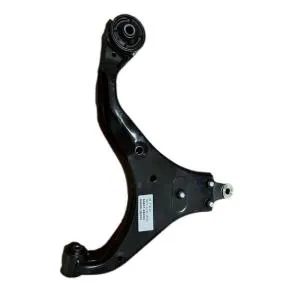
-
 Afrikaans
Afrikaans -
 Albanian
Albanian -
 Amharic
Amharic -
 Arabic
Arabic -
 Armenian
Armenian -
 Azerbaijani
Azerbaijani -
 Basque
Basque -
 Belarusian
Belarusian -
 Bengali
Bengali -
 Bosnian
Bosnian -
 Bulgarian
Bulgarian -
 Catalan
Catalan -
 Cebuano
Cebuano -
 Corsican
Corsican -
 Croatian
Croatian -
 Czech
Czech -
 Danish
Danish -
 Dutch
Dutch -
 English
English -
 Esperanto
Esperanto -
 Estonian
Estonian -
 Finnish
Finnish -
 French
French -
 Frisian
Frisian -
 Galician
Galician -
 Georgian
Georgian -
 German
German -
 Greek
Greek -
 Gujarati
Gujarati -
 Haitian Creole
Haitian Creole -
 hausa
hausa -
 hawaiian
hawaiian -
 Hebrew
Hebrew -
 Hindi
Hindi -
 Miao
Miao -
 Hungarian
Hungarian -
 Icelandic
Icelandic -
 igbo
igbo -
 Indonesian
Indonesian -
 irish
irish -
 Italian
Italian -
 Japanese
Japanese -
 Javanese
Javanese -
 Kannada
Kannada -
 kazakh
kazakh -
 Khmer
Khmer -
 Rwandese
Rwandese -
 Korean
Korean -
 Kurdish
Kurdish -
 Kyrgyz
Kyrgyz -
 Lao
Lao -
 Latin
Latin -
 Latvian
Latvian -
 Lithuanian
Lithuanian -
 Luxembourgish
Luxembourgish -
 Macedonian
Macedonian -
 Malgashi
Malgashi -
 Malay
Malay -
 Malayalam
Malayalam -
 Maltese
Maltese -
 Maori
Maori -
 Marathi
Marathi -
 Mongolian
Mongolian -
 Myanmar
Myanmar -
 Nepali
Nepali -
 Norwegian
Norwegian -
 Norwegian
Norwegian -
 Occitan
Occitan -
 Pashto
Pashto -
 Persian
Persian -
 Polish
Polish -
 Portuguese
Portuguese -
 Punjabi
Punjabi -
 Romanian
Romanian -
 Russian
Russian -
 Samoan
Samoan -
 Scottish Gaelic
Scottish Gaelic -
 Serbian
Serbian -
 Sesotho
Sesotho -
 Shona
Shona -
 Sindhi
Sindhi -
 Sinhala
Sinhala -
 Slovak
Slovak -
 Slovenian
Slovenian -
 Somali
Somali -
 Spanish
Spanish -
 Sundanese
Sundanese -
 Swahili
Swahili -
 Swedish
Swedish -
 Tagalog
Tagalog -
 Tajik
Tajik -
 Tamil
Tamil -
 Tatar
Tatar -
 Telugu
Telugu -
 Thai
Thai -
 Turkish
Turkish -
 Turkmen
Turkmen -
 Ukrainian
Ukrainian -
 Urdu
Urdu -
 Uighur
Uighur -
 Uzbek
Uzbek -
 Vietnamese
Vietnamese -
 Welsh
Welsh -
 Bantu
Bantu -
 Yiddish
Yiddish -
 Yoruba
Yoruba -
 Zulu
Zulu
Jan . 09, 2025 10:53
Back to list
control arm
In the realm of clinical research and product development, the term control arm is pivotal. Yet, its implications go far beyond its seemingly simple definition. By delving into the role and significance of control arms, one can better understand their impact on product development and ensure a comprehensive approach to research practices that enhance every aspect of study design.
From a trustworthiness perspective, transparency in how a control arm is utilized enhances the study's credibility. Stakeholders, including regulatory bodies and potential consumers, gain confidence in the research methodology and outcomes. For instance, thorough documentation and justification of why a particular control was chosen—whether placebo, standard-of-care, or an active comparator—provide insight into the study's integrity. The ethical implications of control arms cannot be overstated. Researchers must balance scientific objectives with patient welfare, ensuring no unnecessary harm comes to participants. This responsibility highlights the authoritative role control arms play in safeguarding human rights within research practices. In summary, the control arm is not merely a component of clinical trial design; it is an embodiment of scientific diligence and ethical commitment. Through applying experience, expertise, authoritativeness, and trustworthiness, the control arm becomes a cornerstone of successful and reliable product development. This careful orchestration not only enhances the quality of research outcomes but also enriches the journey from concept to market, ultimately benefiting the end-users who rely on these innovations for improved quality of life.


From a trustworthiness perspective, transparency in how a control arm is utilized enhances the study's credibility. Stakeholders, including regulatory bodies and potential consumers, gain confidence in the research methodology and outcomes. For instance, thorough documentation and justification of why a particular control was chosen—whether placebo, standard-of-care, or an active comparator—provide insight into the study's integrity. The ethical implications of control arms cannot be overstated. Researchers must balance scientific objectives with patient welfare, ensuring no unnecessary harm comes to participants. This responsibility highlights the authoritative role control arms play in safeguarding human rights within research practices. In summary, the control arm is not merely a component of clinical trial design; it is an embodiment of scientific diligence and ethical commitment. Through applying experience, expertise, authoritativeness, and trustworthiness, the control arm becomes a cornerstone of successful and reliable product development. This careful orchestration not only enhances the quality of research outcomes but also enriches the journey from concept to market, ultimately benefiting the end-users who rely on these innovations for improved quality of life.
Next:
Latest news
front-lower-control-arm-that-key-to-mitsubishi-lancer-or-outlander-suspension
NewsAug.22,2025
a-arm-car-components-that-premium-suspension-for-hyundai-santa-fe
NewsAug.22,2025
extended-control-arms-that-elevating-vehicle-suspension-performance
NewsAug.22,2025
essential-tools-for-driver-side-control-arm-replacement-procedures
NewsAug.22,2025
comprehensive-analysis-of-front-control-arm-and-front-upper-control-arm-technologies
NewsAug.22,2025
control-arm-that-reliable-automotive-components-by-hebei-lingke
NewsAug.22,2025







